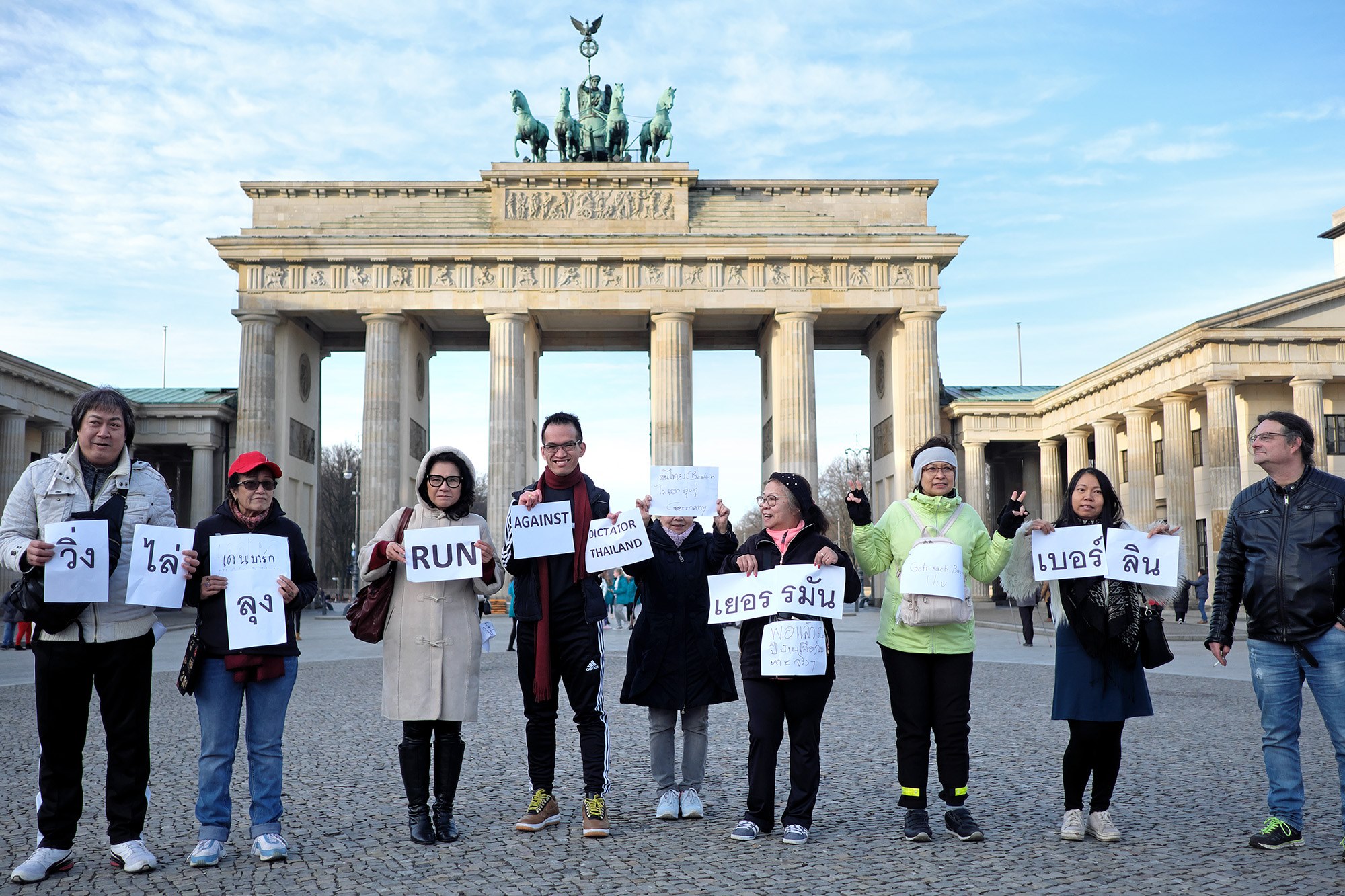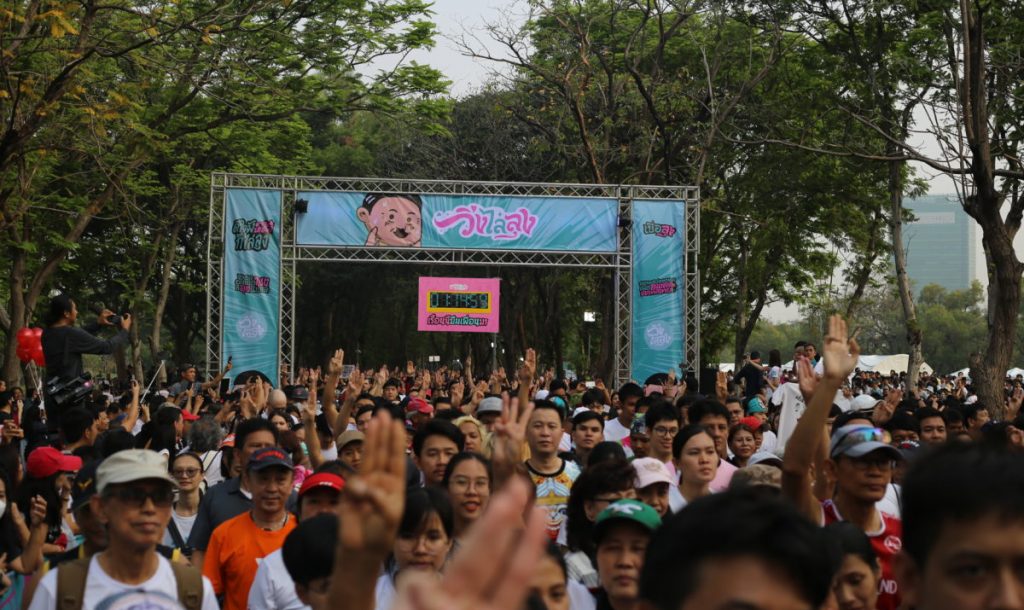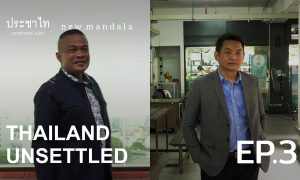Over the weekend, Run Against Dictatorship, a pro-democracy activist and student group, held a mini-marathon which saw a large gathering of some 13,000 runners in Bangkok and smaller gatherings in many provincial towns. It was the largest political gathering seen in Thailand since the 2014 coup.
Thais in foreign countries also held support events. In Berlin, a small gathering took place at the Brandenburg gate. While limited in number, the protest shows a very interesting trend in Thai politics: previously politically disengaged members of the population joining organised political activity alongside older red shirt activist groups.
When the protest in Berlin was announced over Facebook, the red shirts and pro-democracy activists in Europe who I contacted were aware of neither the organisers nor their background. Several, however, said that they didn’t mind and would nevertheless come in support.
On the day, Khun Oi, the organiser and admin of a small Facebook group of Thais living in Berlin, as well as one member of the group, gathered at the Bradenburg gate despite the freezing weather. They were joined by several red shirt activists from Berlin, Hamburg, and one even from Denmark.
Oi is the owner of a traditional massage business in Berlin and has been handicapped ever since a high fever at the age of 18 left him without the ability to speak and some motor functions (though he can communicate with the use of a tablet). He had previously not involved himself in any political gatherings of either colour. He says that he is neither a red shirt nor yellow shirt. Instead, Oi was inspired by the example of Thanathorn Juangroongruangkit, the leader of the Future Forward Party, to get involved into politics. Upon announcing the protest though, a Thai student in Germany insulted Oi on Facebook and threatened to report him to German immigration. Some members of his Facebook group also opposed the protest.

The other member of the Facebook group, Khun Wan, is also newly politicised. She had never followed the politics of either colour, but began to get interested in Thai politics last year through the emergence of Thanathorn and the Future Forward Party.
Right after the 2014 coup, I spoke with Tida Thawornset, the former chair of the United Front for Democracy Against Dictatorship (UDD), the largest red-shirt group. She said that the UDD will for the time being not resist the military with large scale protests because the red shirts alone will not be able to transform the political system in Thailand. She said that the past years have shown that the red shirts need more allies in society—be it from Thais previously uninvolved in politics, or former yellow shirts disappointed with the side they have chosen, or from within the military and civil service. She said that the population needs time to experience the consequences of the coup and come to the right conclusion by themselves, without red shirt protests aggravating the situation.
This strategic projection seems to be actualising, with self-politicised Thais organising or joining protests in alliance with older red shirt activist groups. It is no wonder that the military and the traditional elites were so paranoid over the emergence of the Run Against Dictatorship event. It remains to be seen whether the event is followed by large scale protest and further street politics. Even so, the event clearly demonstrated rising discontent with the political situation in Thailand that is no longer contained within the old red shirt communities, but is spreading to previously uninvolved sectors of the Thai population.
 Facebook
Facebook  Twitter
Twitter  Soundcloud
Soundcloud  Youtube
Youtube  Rss
Rss 


